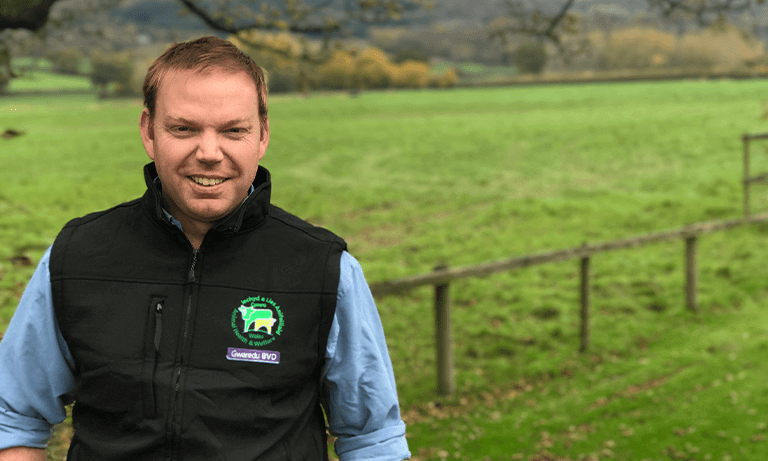Brucella canis: what vets need to know
14 Feb 2024
25 May 2021 | Neil Paton
The fight to control Bovine Viral Diarrhoea (BVD) across the UK's agriculture sector has never been so strong, with dedicated eradication programmes in operation across all four nations. Dr Neil Paton from Wales’ Gwaredu BVD eradication programme explains why it is so important for farm vets to lead the conversation, and the benefits of stamping out the disease once and for all.

I’ve been acting as Technical Director on Wales’ successful Gwaredu BVD programme for the past 4 years. During this time, over 8,700 young stock have been screened for the disease through our voluntary programme and an increased level of persistently infected (PI) hunts have been carried out across Wales as a result of screening.
The core aim of Gwaredu BVD is to eradicate the disease from Wales altogether, but this is not possible without the continued efforts made by both farm vets and farmers. Although we’ve seen some incredibly strong results since the launch of the programme, there is still a percentage of herds who have;
By not conducting PI hunts, the disease will continue to spread and have the complete opposite effect of what we wish to achieve. This is when the conversation between the farm vet and their client becomes vital in our fight against BVD. Without continued collaborative efforts, we truly cannot eradicate the disease until all appropriate action is taken.
Although it’s not a legislative requirement to ensure herds are clear of the disease, BVD can be costly and there are a range of benefits to use the Gwaredu BVD and likeminded initiatives:
It’s estimated that BVD can result in approximate costs of £15,000 in dairy herds and £4,500 in beef herds as a result of poor fertility, reduced milk yields, low daily live weight, fever, diarrhoea and respiratory problems. Through the Gwaredu BVD programme, there is funding available of up to £1,000 to conduct a PI hunt on the herd, if needed. This support is available until December 2022 and means that farmers can be protected from potentially long-term financial strain.
As the programme is industry-led, we have a strong network of experts within the sector who have helped it become a great success. Vets are a huge part of this network and are always right at the forefront, providing expert knowledge and information to their clients. As professionals with vast knowledge on animal health and welfare, farmers often will seek advice and follow decisions from their vet, so this is crucial when we talk about continuing the conversation.
That’s why, whenever an infected herd is detected, I urge vets to ensure they are encouraging a PI hunt and the eventual culling of the animal - for best interest of the farmer and the remaining, healthy herd.
Whilst the health and wellbeing of herds is always priority, so is the health and wellbeing of your clients. An unhealthy herd can be stressful and of course, lead to significant financial strain. BVD is just one of many obstacles that a farmer may come across year-on-year, unless we can eliminate it altogether. To say you have a healthy herd is always a really good feeling and by dealing with problems as soon as they’re detected, we can work together to ensure reputations aren’t damaged and these herds are left for future generations.
Dairy Farmer, Abi Reader from South Wales always works closely with her vet to monitor and control BVD at her farm:
“I have a fantastic working relationship with my vet, Morgan Richards of South Wales Farm Vets, who has always been there to advise and assist with my BVD control. Since 2018, we’ve used the support offered through the Gwaredu BVD programme and it’s meant that I haven’t had to deal with any expensive costs as a result of health herd problems.
This has made me feel confident in knowing that I have a large, healthy herd and that my farm will be sustainable as a result. I have appreciated using the programme along with my vet who ensures annual screenings happen. I am hugely proud to say that BVD management and control has become part of our routine and I hope many farmers across the UK are fortunate enough to have similar relationships.’”
The movement towards the eradication of BVD is going in the right direction, but the importance of conversation between the vet and farmer has never been greater.
You are the voice, and we cannot do it without you.
There are so many benefits to eradicating this disease once and for all, and I am extremely grateful to all Welsh farm vets who have dedicated their time to follow the requests of the programme. Through the Gwaredu BVD programme, financial support for PI Hunting is available until December 2022 and I urge you to encourage your clients to screen their herds and, if required, follow up with essential culling of infected animals. By doing this, we can say ‘goodbye’ to this costly disease and be part of making history.
If you’re a vet in Wales and would like more information on the Gwaredu BVD programme, please visit www.ahww.cymru or visit the website of your national eradication programme.
Get tailored news in your inbox and online, plus access to our journals, resources and support services, join the BVA.
Join Us Today